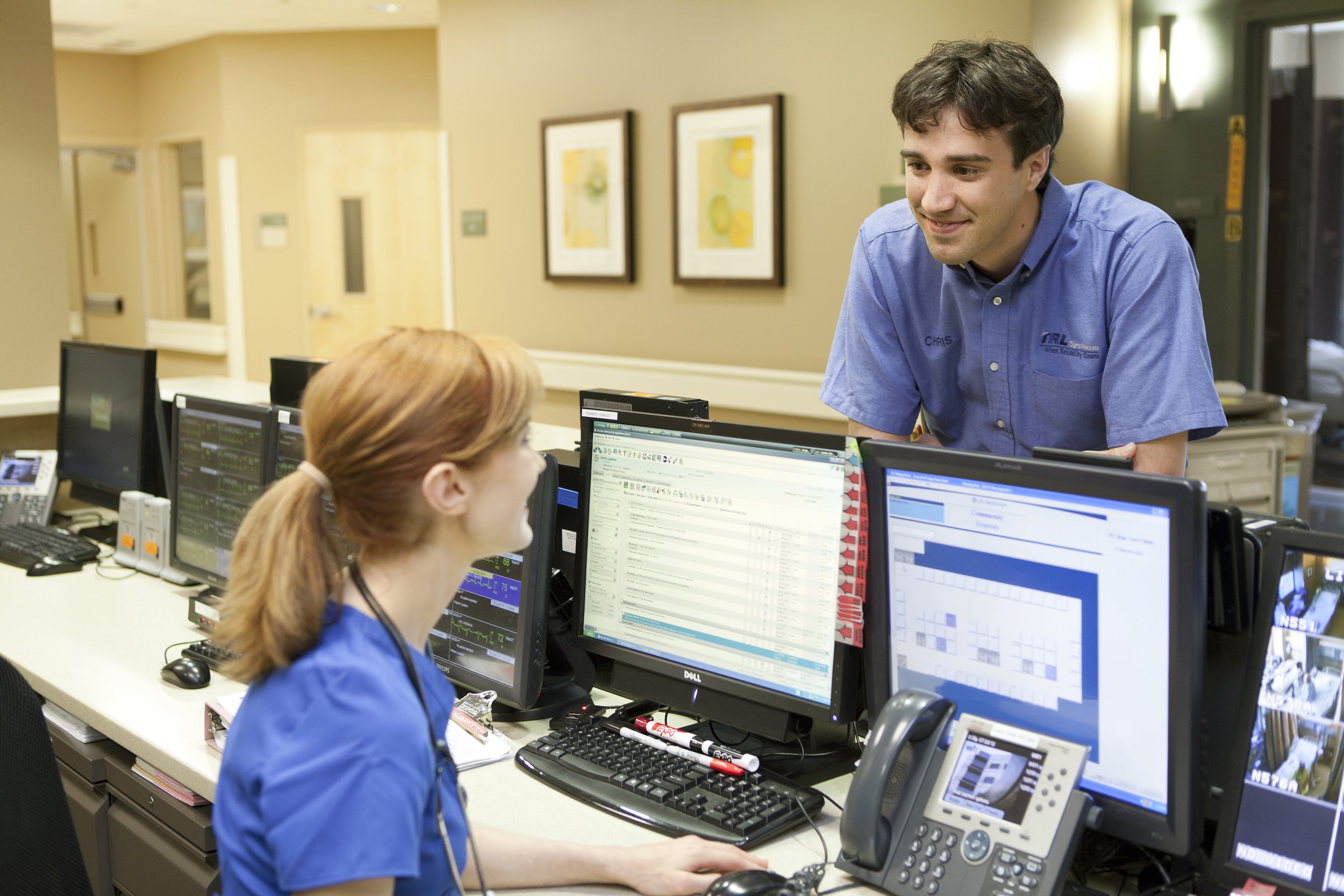Healthcare Technology Support: What You Need to Know
With the increasing adoption of high-tech solutions in the hospital environment, it’s crucial to be aware of your facility’s maintenance and tech support requirements. Support services vary from the classic call-in tech support to on-site employee training services. Familiarity with available maintenance and service support options streamlines life safety tech adoption and operation.
Tech support
Access to tech support services is crucial to preventing the age-old problem, “I tried to fix it and just made it worse.” Even in cases where brute-force problem-solving does work, good tech support saves time and frustration — the key word here being “good.” Good tech support should be:
Available. Good tech support is available when you need it. If you have an issue, you should be able to reach tech support without having to worry about long waits or inconvenient hours.
Accessible. There should be various methods for obtaining tech support, whether it be over the phone, remotely online, or in person. Trying to explain a complex problem over the phone isn’t always feasible. The more support options, the better.
Responsive. Response time on requests for technical assistance should be quick and reliable. You can’t afford to wait on hold for hours when life safety technology isn’t working as it should.
Comprehensive. Service should be clear and thorough. You shouldn’t struggle to understand the instructions or equipment needs, and support should include ongoing training for on-site maintenance, security, and clinical personnel who will interact with your facility’s life safety technology.
These qualities, among others, are signs of a reliable and useful tech support service. But support alone isn’t enough to keep life safety equipment running in top form. There are some critical support services that are a bit more hands-on.
Testing and maintenance
Testing is the best way to catch equipment problems before they become major issues. Proper testing ensures equipment is up to date and functional. The best testing services include maintenance services and comprehensive checklists and reports on equipment status.
Regular equipment maintenance ensures everything is thoroughly tested and maintained. Maintenance checks will find and resolve the underlying causes of equipment issues and may detect future issues before they happen. Equipment maintenance may involve anything from regular cleaning to replacement of worn-out parts. Proper maintenance keeps life safety equipment running at its best, for as long as possible.
Other support services
There are several other useful support services that would benefit a healthcare facility. For example, system training and reorientation instructs healthcare facility personnel on the proper use of life safety equipment. It is critical to ensure staff competency with high-tech systems before they interact with them regularly. Both new hires and seasoned employees benefit from system training. In the long run, ongoing training reduces human error and unnecessary tech support traffic.
Equipment and parts shipping is another valuable support service. When a piece of equipment malfunctions or is in need of repairs, obtaining parts and tools efficiently is vital. Support services save you money by handling the ordering and shipment of necessary parts.
Finally, healthcare facility workflows benefit from analysis to identify areas in which technology can be leveraged to improve clinical efficiency and outcomes, manage risk, and enhance the overall healthcare experience for facility staff and patients.
A good support service will check in with clients to ensure everything is running smoothly. For example, support services may send reminders for maintenance needs, or provide additional information or clarification about your equipment. Check-in calls keep tech concerns top of mind. Some small issues are delayed to the point of becoming big problems, and check-ins are useful for ensuring they are addressed and resolved.
When looking into tech support services, it’s a good idea to know what providers offer and what your facility needs. Sometimes you require a service tied to a specific manufacturer, while other times, general support is sufficient. No matter what equipment you have on hand, access to good tech support services is crucial for keeping everything running smoothly.
To learn more about comprehensive technology support for your healthcare facility with TRL’s Total Care Support, contact sgranillo@TRLSystems.com.


